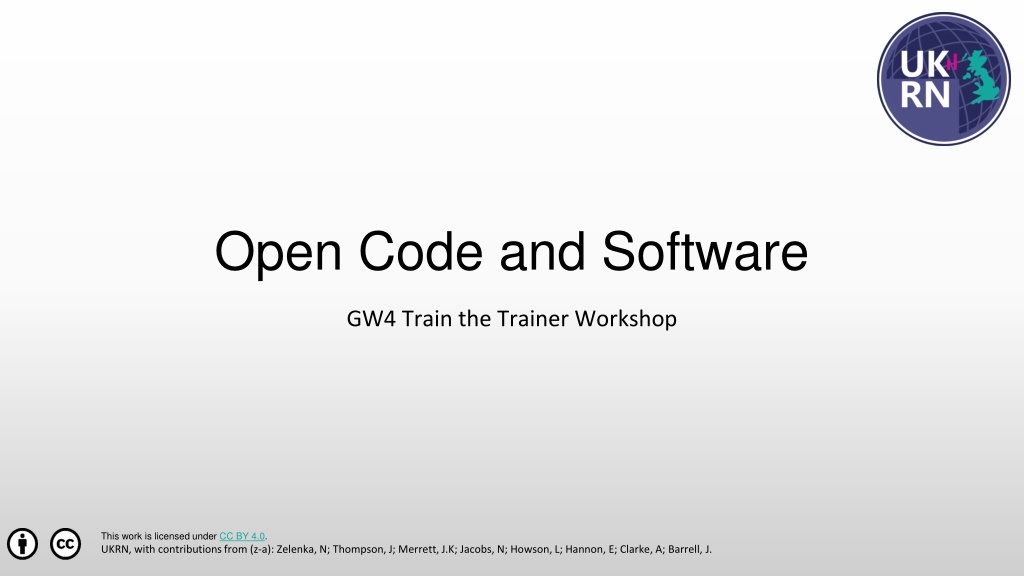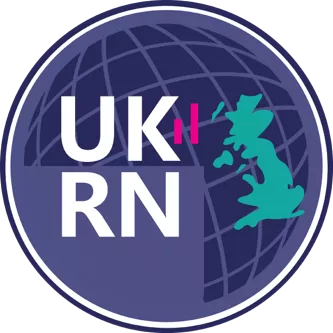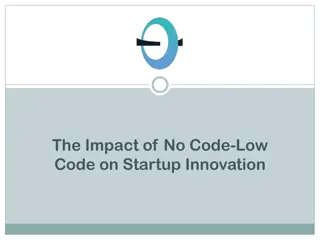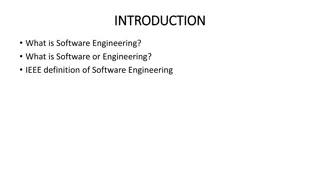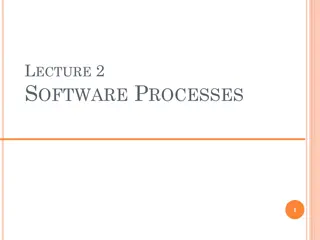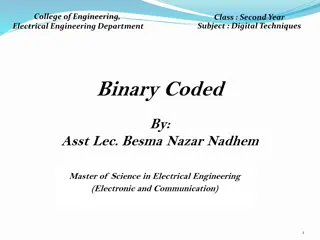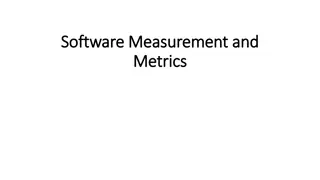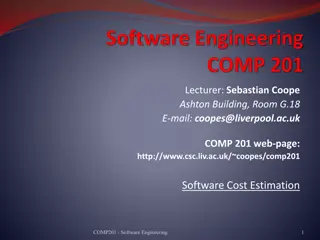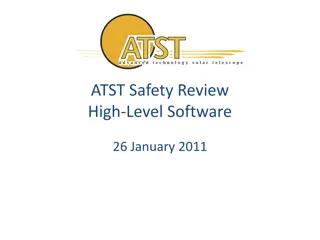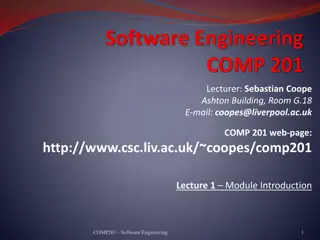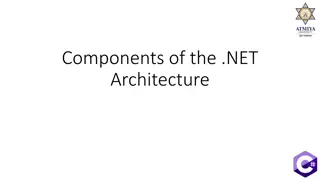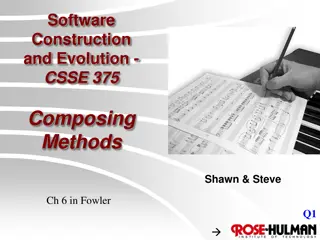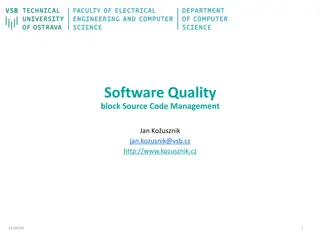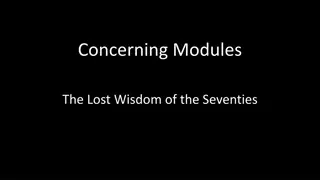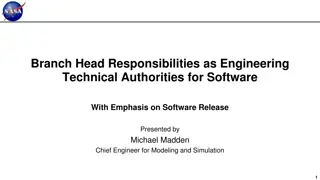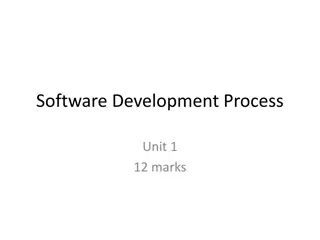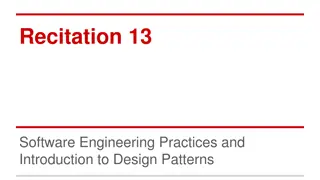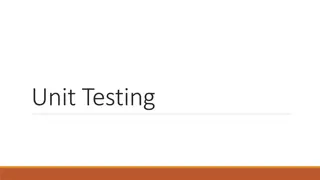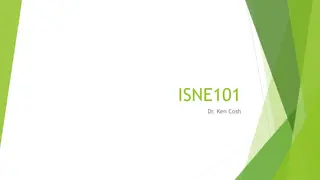Open Code and Software Workshop
This workshop focuses on software licenses, collaborative development, version control, and writing code for open research. Participants will work in groups to design workshops aligned with optimal pedagogical practices and strategies for motivating trainees. Key topics include choosing licenses, making code available, and using version control.
Download Presentation

Please find below an Image/Link to download the presentation.
The content on the website is provided AS IS for your information and personal use only. It may not be sold, licensed, or shared on other websites without obtaining consent from the author.If you encounter any issues during the download, it is possible that the publisher has removed the file from their server.
You are allowed to download the files provided on this website for personal or commercial use, subject to the condition that they are used lawfully. All files are the property of their respective owners.
The content on the website is provided AS IS for your information and personal use only. It may not be sold, licensed, or shared on other websites without obtaining consent from the author.
E N D
Presentation Transcript
Open Code and Software GW4 Train the Trainer Workshop This work is licensed under CC BY 4.0. UKRN, with contributions from (z-a): Zelenka, N; Thompson, J; Merrett, J.K; Jacobs, N; Howson, L; Hannon, E; Clarke, A; Barrell, J.
Welcome Introductions Motivation for the day (us & you) Housekeeping
Objectives Work in groups to develop a workshop for delivery in your institutions Align these workshops with the optimal pedagogic practices relevant to the topic Pre-empt barriers challenges to motivating your trainees to adopt change in their working practise Design a strategy to evaluate your workshop
Schedule 1000-1030 Introduction to the day 1030-1100 Identifying your trainees 1100-1150 Planning an overall workshop 1150-1210 Break 1210-1310 Planning an individual session 1310-1350 Lunch 1350-1420 Helping trainees adopt open research practices after the workshop 1420-1510 Delivering the workshop - how to be an effective trainer. 1510-1530 Break 1530-1630 Workshop planning session 1630-1700 Next steps
Workshop themes Software Licenses Collaborative Software Development (names of those in group) (names of those in group) Mechanisms/tools for making code available Version control Writing code for open research
Group Discussion What is the overall goal of your workshop? What s in scope and what s out.* *Opportunity to change groups at this stage if appropriate
Workshop themes Software licences Collaborative software development What is a licence? Who cares about the choice of licence? Institution, me, PI, funder, journal? Differences between them/common principles of licences How to choose. Clearly defined goal/milestones/end point Establishing standardised ways of working Code review Documentation Mechanisms/tools for making code available What are your requirements now and in the longer term. Focus on technical training of one tool or overview of multiple tools? Version control Writing code for sharing/open research Introduction to Version Control (concept) Introduction to Version Control (with specific tool i.e. git) How to use Version Control to host open code How to use Version Control to manage individual code projects How to use Version Control to manage collaborative code projects What criteria are you trying to satisfy by making code open? To share a new method for others to use? To accompany a specific manuscript and series of analyses? Differences to how I normally write code for me? What code needs to be included to be open? Random seeds
Identifying your trainees Who would be interested in your workshop? OR Who are you trying to engage with? Identify the needs and motivations of your potential learners
Identifying your trainees For example: New to coding (e.g. nudge from using Excel R / Python) Already codes but new to open code Already shares code but wants to improve Prerequisites? Experience of a specific programming language or language agnostic. Part of a specific field Particular career stage Particular background Already have some code they want to share.
Group Discussion Who are the trainees you are targeting? How would you identify their learning goals.
Constructive Alignment Session outcomes What do we want learners to know? Checking progress Session activities How will we know the learners have learnt? How will the learners learn? Adapted from Biggs (1999).
Session outcomes/objectives What do we want learners to know? (Produce? Demonstrate?) By the end of the session/workshop/course learners should be able to
Planning an overall workshop Trainees prior knowledge Key concept Technical skill Key concept Technical skill Key concept Technical skill Workshop objectives
Group Discussion Given the overall goals of the workshop, what outcomes do you hope the trainees will achieve as a result of your workshop? What overall approaches do you expect to use to achieve these outcomes? How will you evaluate the outcomes? Plan the structure of your workshop by dividing the workshop into individual sessions Plan ahead for later in today and decide who is responsible for leading planning for each session
Session activities How will the learners learn? How do you choose your learning activities? What influences your choice of learning activities? The QR code takes you to a Padlet that explores some activities identified in previous sessions. Feel free to add to this resource.
Learning checks How will we know the learners have learnt? How do you know your teaching approach has been effective?
Learning checks Formative assessment and feedback. Use discussion to double check if ILOs are fulfilled Questioning Feedback form Using Mentimeter Put forward an example and see how the concepts from the session are applied Demonstrating what they have learnt in practical session following theory Sometimes they telegraph it with their faces Include quizzes Polls Taking short breaks in a session to ask if something makes sense, or are there any questions Describe the next step in a calculation or procedure Ask them to work on example questions.
Practice planning an individual session Individually, plan a session in your workshop, including intended outcomes, learning resources, a range of activities, and progress checks We are available throughout this stage to help you. In groups, reflect on each others sessions and note your conclusions
Helping trainees adopt open research practices after the workshop In groups: reflect on what barriers their trainees may encounter in adopting the specific open research practices covered by their workshop, and agree how to plan it to help the trainees address those barriers
Ten simple rules for implementing open science after training Join a community to access expertise and support Make a shortlist of practices that you might want to implement in your current project Talk to your research team about changing practices Prepare for resistance and address it constructively. Decide what to implement and set up an implementation plan Be patient and ready to compromise. Research improvement is a marathon, not a sprint. Plan to make changes sustainable. Develop your own skills and get recognition for changing practices Look after yourself 10. Find future employers who value your skills and interests 1. 2. 3. 4. 5. 6. 7. 8. 9.
Delivering the workshop Individually, identify one aspect of your session that you re not looking forward to delivering, and plan a rough way of approaching it In groups, practice delivering it; take turns in the role of trainer, learner, observer/feedback
What makes a good facilitator? You can use the QR code to add your responses to this question
Delivering the workshop Considerations Your teaching style/approach Level of learning Balance Accessibility/inclusivity Tools
Workshop planning session In groups, confirm workshop sessions each member will lead on designing, write for 15 mins, review each others draft for 5 mins, feedback, repeat. We are available to help during this activity In groups, reflect on the process and agree practical next steps to make sure the work continues after today
Next steps What UKRN expect a workshop run in July, reflection in Aug/Sept, further workshops in 23-24 Specific commitments to action from each group; who will do what, by when? Discussion of support trainers expect from their institutions Next steps in evaluation of this event
